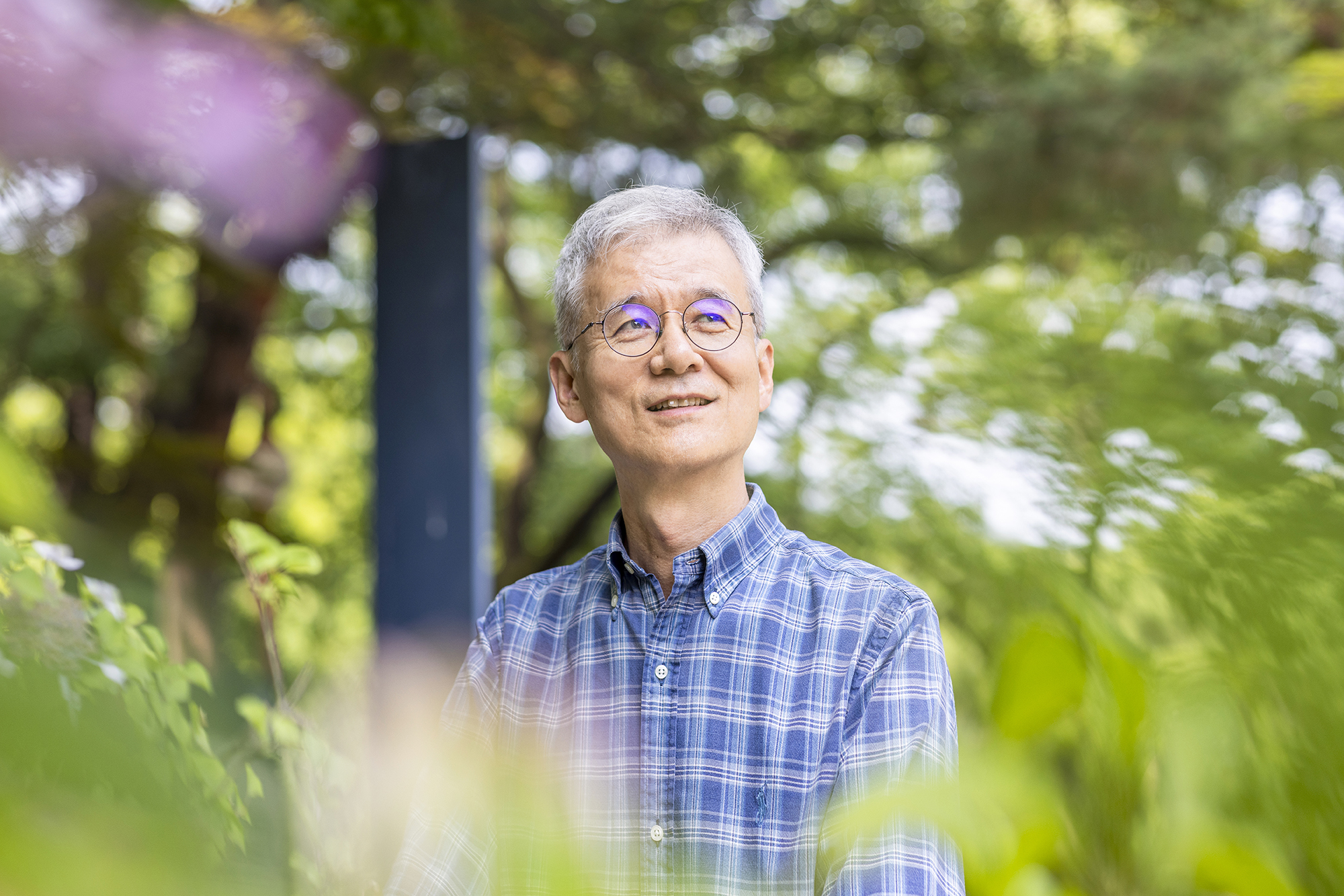- The Path of Philosophy July 02, 2024
-
The Path of Philosophy
Department of Philosophy, Professor Seung-Chong Lee
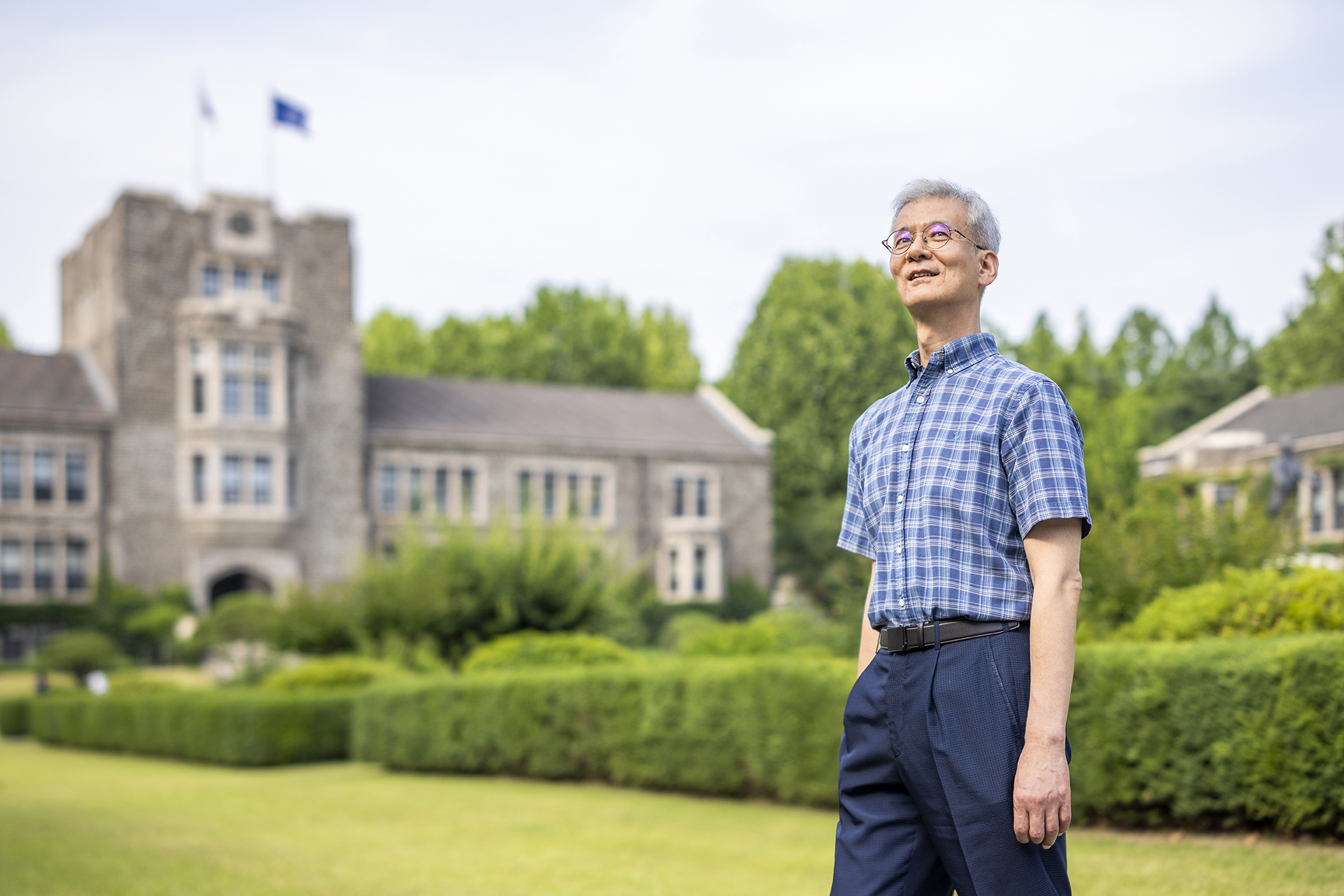
The coming-of-age novels written by Hermann Hesse, Thomas Mann, and Somerset Maugham paved the way for me to understand the world broadly and in depth. I also encountered philosophy through books. While women can see for themselves how they are changing, through physical changes such as the onset of menstruation, changes for me were neither limited to my body nor visible to the eye. However, the books I had read during puberty triggered the changes that were more fervent and vivid than anything else.
Books were like a Stargate (a portal moving from one dimension to another) leading me to a completely different world, where I could encounter the souls of great writers and thinkers. It felt as if I were being drawn right into their stories and teachings beyond the huge gap in time and space between them and me. The authors of the books showed me that the time and space in which I stood were not everything; they also showed me the vastness of time and space and the depth of their meanings.
I came to highly regard my encounters with authors through books, and they were even more valuable than encounters with beloved friends or lovers. Let me refer to such precious encounters as second-person encounters. The "you" in the second person is neither as distant as the "he" or "she" in the third person nor as close as the "I" or "we" in the first person; and whenever I opened a book or reflected on what I had read, these encounters instantly overwhelmed me, completely paralyzing both my mind and body.
These second-person encounters with books encouraged me to go back to square one and reconsider life from the beginning. I would often ask myself what it means to be alive, what I want to become, and what I should do. As I held on to these questions not only when I was awake but also asleep, I had all kinds of dreams. Once I awoke from those dreams, I pored over Freud’s A General Introduction to Psychoanalysis to figure out what those dreams meant, and I even had more dreams to test the contents of the book on myself. This made me, a high school student then, spend an entire winter break just having dreams like a fool.
My experimenting and wandering triggered by the second-person encounters with books were like a fever or a divine calling, through which I began to experience a transformation akin to metamorphosis in insects. I would spread my wings and fly in my dreams. I was not exactly flying high, but I could fly high enough to look down on my neighborhood without trouble. Even awake, I was constantly lost in my thoughts, so anyone would have seen me as a daydreamer dazed and staring into space. I would openly share my thoughts and experiences with close friends in words or in writing (letters), but mostly, I tried to seek a breakthrough myself by having conversations with books rather than friends. I was closer to books than friends, and the world I encountered in books seemed more limitless to me.
I jumped right into the unknown path illuminated by books and decided to turn that path into my lifelong career. I vaguely sensed that the deepest and farthest path was known as “philosophy.” Descartes was also helpful in teaching me the rules for exploring the truth of learning, but the seeker I aspired to take after was Siddhartha, the protagonist in Hesse’s novel of the same name. I had no idea whether I was capable or qualified to set out on the path of philosophy, or where the path would lead me, but I was drawn to philosophy like a magnet. I did not make the most appealing choice after weighing several paths, but I accepted the path of philosophy as a calling without a choice.
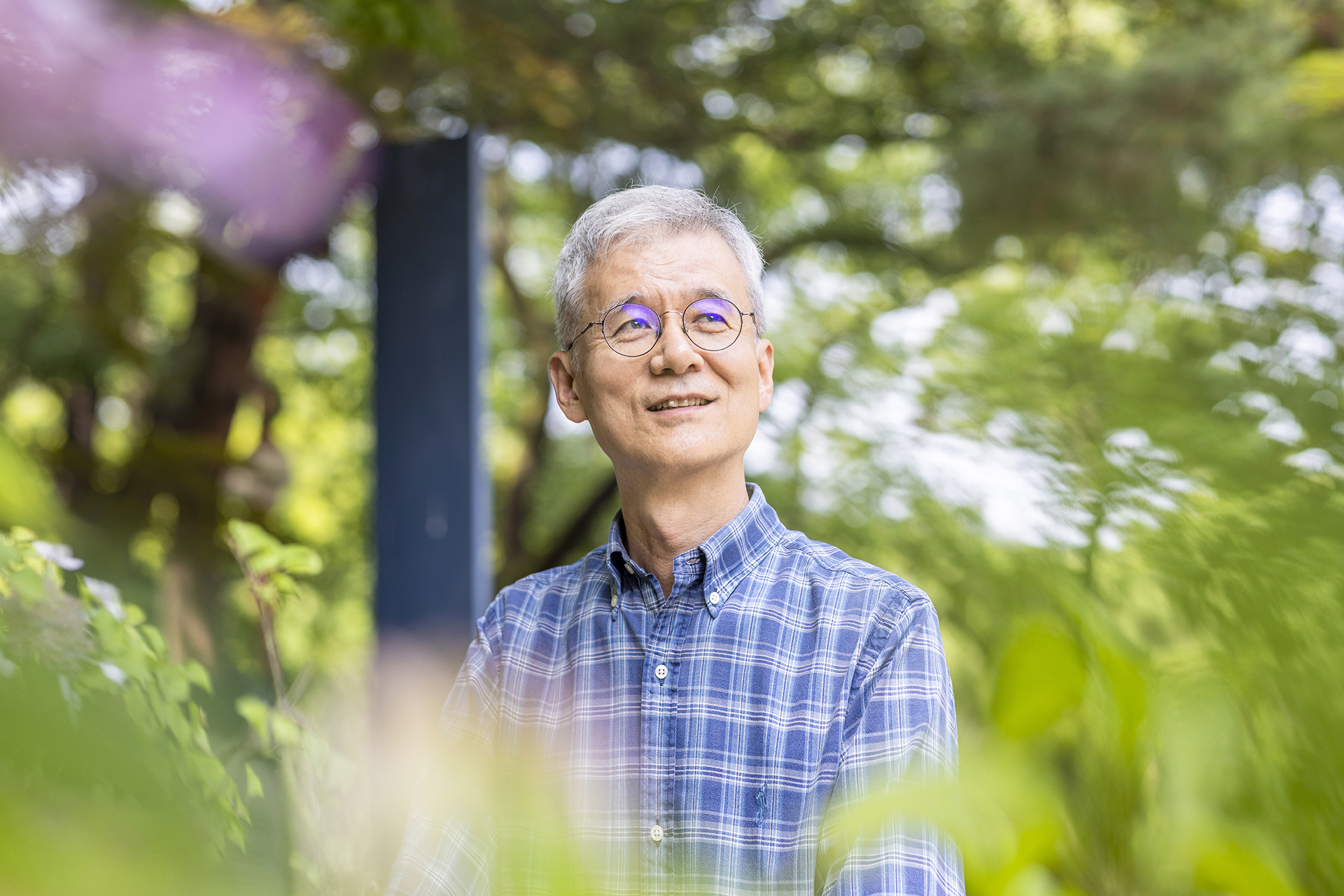
It was only when I became a senior in high school that I finally managed to hold the rein over my mind and settled myself down to study, and fortunately, I got accepted into the department of philosophy, as intended. The world of academia I encountered at university was strikingly vast. I was intrigued by certain disciplines in different ways, such as philosophy and literature in humanities, sociology and economics in social sciences, and physics in natural sciences. I skimmed through the fields I was interested in. Despite the great joy of learning, I still had no idea what to do with it. Learning just to overcome ignorance did not seem enough. Sometimes I was skeptical whether this was the path of the seeker I had desired to be. This is because I found only scholars, not seekers, on this path I had taken.
Compared to the stormy period of my high school years, the four years of university were for laying the groundwork for my studies. Books were still sending me powerful messages. Books were greater than the university, and their authors were more dignified than the scholars around me. After entering graduate school, I came to focus my research on a single author and his single book. The author I chose was Wittgenstein, and his Philosophical Investigations became the book of my life. I chose him because his life resembled the image of the seeker I was searching for. I prepared my master’s thesis for two years with my research topic finalized and could fully enjoy the pleasure and fulfillment of academic writing about philosophy in the process.
After completing my master's thesis, I sought out the Buddhist monk Venerable Beopjeong, whom I had known and admired only through his writings. This was because I had a powerful yearning for the path of a seeker, even though I had just started on the path of a scholar. I wanted to find out whether these two paths could overlap. Venerable Beopjeong advised me to live in a temple before I make a choice between the two. I followed his advice and stayed at Seongbulsa Temple in Cheonan, but this did not last long since I had to perform military service.
A few decades later, I went to Myanmar to learn meditation, where I asked the same question about the path of a scholar and the path of a seeker to Sayadaw U Tejaniya at the Shwe Oo Min Dhammasukha Meditation Center. His answer was different from that of Venerable Beopjeong. He said that the attitude of a disciplinant would also be helpful for the path of studies pursued by a scholar and suggested that I approach my studies as I would approach asceticism. He said that this would deepen and broaden my studies, and I was encouraged by his words. I could come up with free, creative inspirations for learning, feeling as if I was opening up new realms I had never encountered before.
If you continue down the road of philosophical study, you will eventually get an opportunity to write and teach about it. To teach, you must first internalize what you intend to teach. This internalization is in line with writing. This is because writing is the product of internalization. The university in the U.S. where I went to write my doctoral dissertation gave qualified graduate students an opportunity to teach undergraduate courses, and I could also make a somewhat less-than-perfect attempt to communicate with American students through the philosophy course I opened.
In addition to the university and nearby colleges, I also gave philosophy lectures for a prison education program for inmates at a prison. The students in prison tried to reflect on their experiences through philosophy and incorporate its meaning into their lives. It seems that meeting with me was the only, thus precious, time to learn and discuss life and study with someone outside the space they are locked in. The university students on campus reminded me of my college years, and the students in prison reminded me of my high school years.
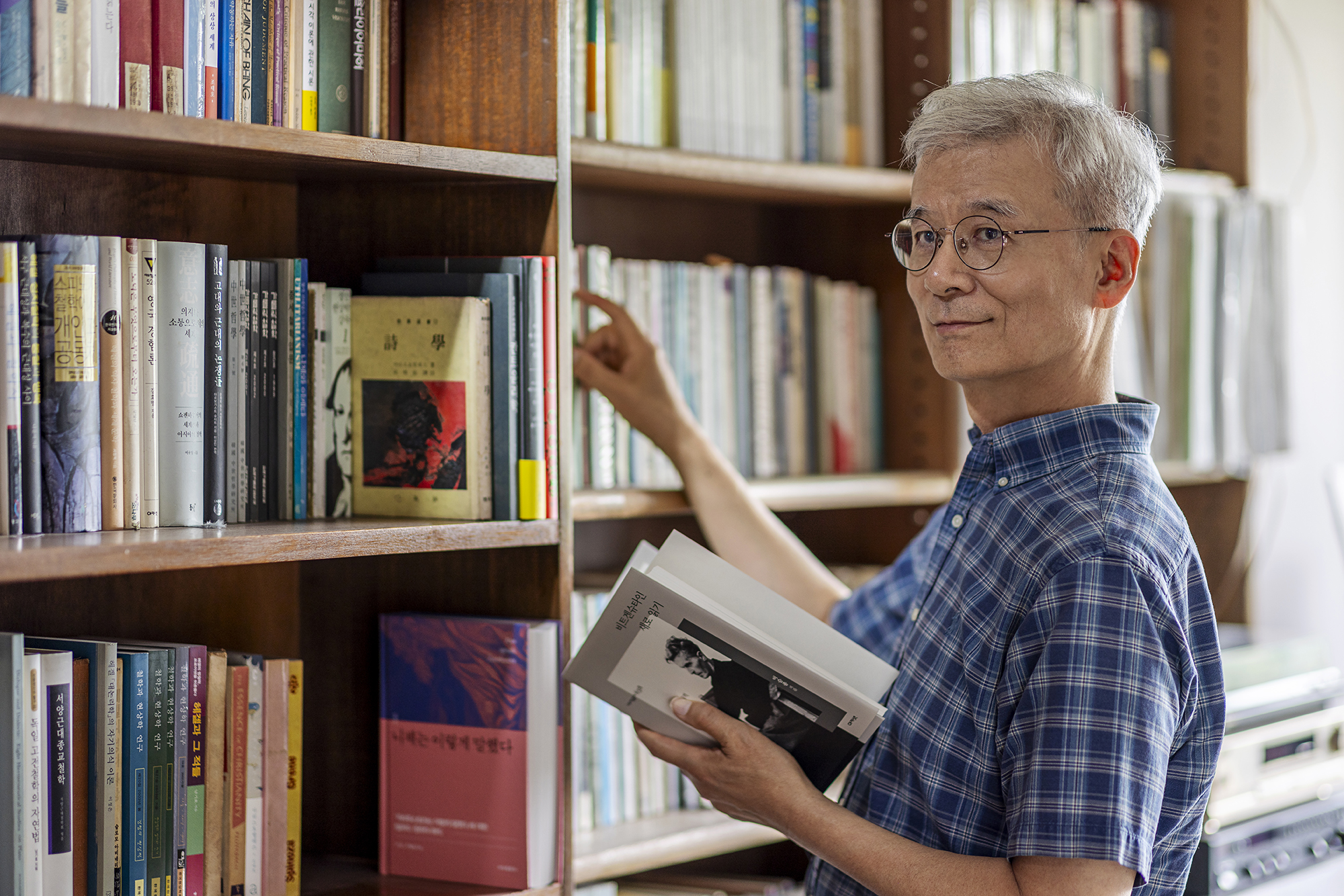
Following one's intended path also means "continuing an existing path and creating a new one." I have set my heart on philosophy, studied it, produced results, and shared what I learned and realized with my students. Your meaning of life does not necessarily have to be philosophy. I believe that setting your heart on something meaningful and striving for it makes your life wonderful. You can pursue happiness by enjoying the life at hand without an ambitious goal, but that kind of life will barely contribute to your community or humanity.
I wish to share with you ten books that are the fruits of my lifelong study of philosophy. Each book contains what I learned from philosophy and my thoughts based on my learning. I believe that learning and writing about philosophy can be done by not just those dedicated to philosophy but also anyone interested in philosophy. The moment you write down what you thought and felt after reading philosophy books, you are joining in on learning and writing about philosophy. Wittgenstein, the philosopher I specialized in, also recorded his own thoughts on philosophy throughout his life in the form of diaries, and his books are compiled from these records.
After completing my doctoral dissertation on Wittgenstein in the U.S., I co-authored an English book titled Derrida and Wittgenstein (Temple University Press, 1994) with my advisor Newton Garver (State University of New York at Buffalo, Department of Philosophy). As I wrote and translated this book, I gained the perspectives of deconstruction from Derrida and naturalism from Wittgenstein, through which I could establish a framework for understanding Western contemporary philosophy by contrasting these two perspectives.
My book If Wittgenstein Were Alive: Logical-Philosophical Investigations is a work that compiles my research on Wittgenstein with a focus on logical philosophy, especially the theory of contradiction. It reveals how his writings from the early, middle, and late periods are each associated with the theme of contradiction in different ways and emphasizes contradictions within the system of his main work Tractatus Logico-Philosophicus for the early period. I reviewed his laissez-faire attitude toward contradictions in formal systems such as mathematics and logic for the middle period and examined what contradictions meant in philosophy and everyday life for the late period.
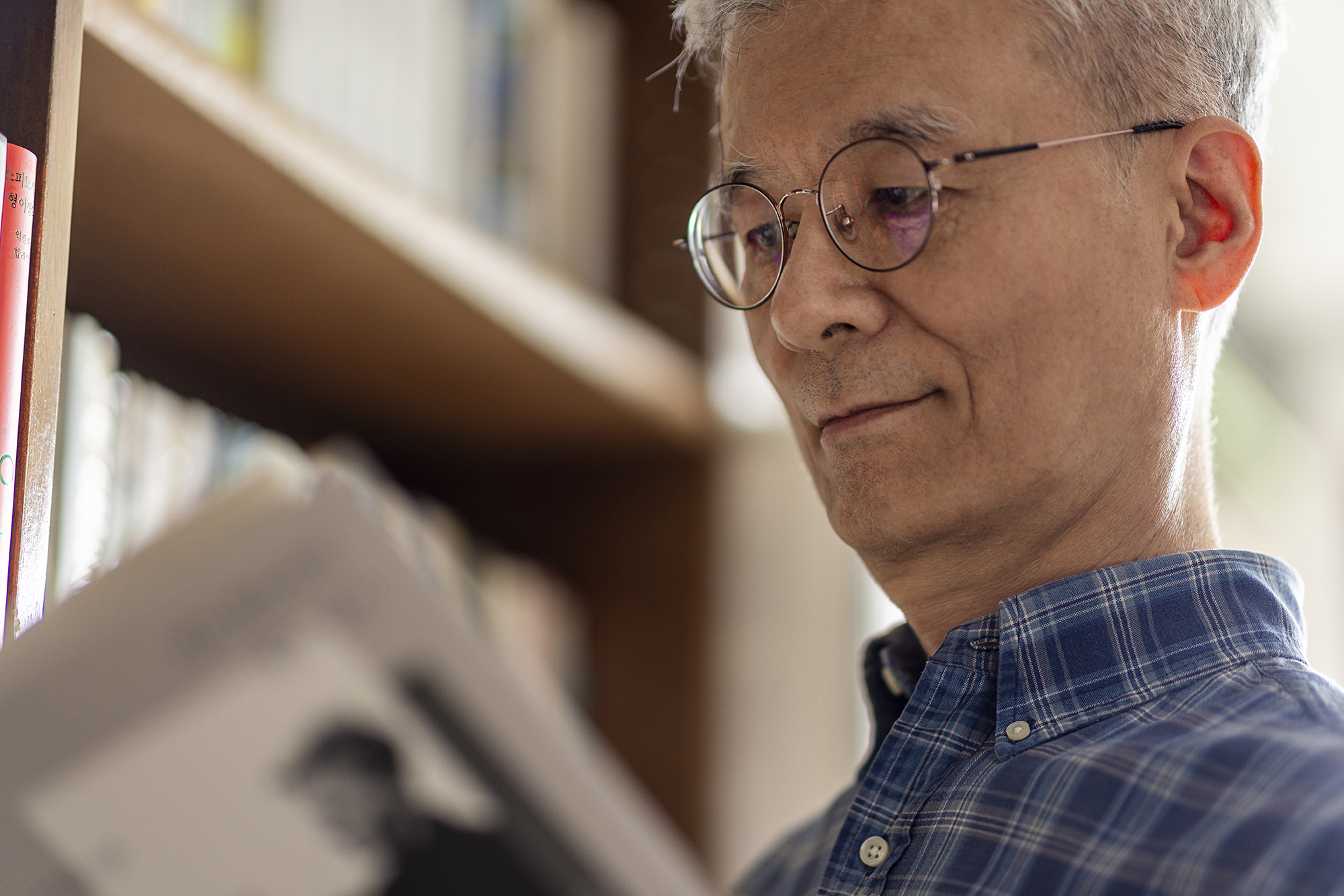
Wittgenstein was an original philosopher with a brilliant vision and the clear insight of a disciplinant, yet his manuscripts did not fully highlight these two aspects complementarily. Owing to his severely high standards set on the strictness and perfectionism of his thoughts, most of his manuscripts are left unfinished, keeping his mature thoughts from blossoming into the level of a symphony, which is also a shame. Heidegger could make up for the shortcomings and gaps I felt with Wittgenstein. Heidegger digested the entire history of Western philosophy in depth, from which his inherent and bold thoughts blossomed. I respected Wittgenstein’s attitude of a seeker toward life, but I could relate more to Heidegger’s philosophy. Heidegger seemed to resemble the musical realms of composer Anton Bruckner whom I admire. I reinterpreted and reinvented what I learned from Heidegger and wrote Crossover Heidegger: Towards Analytical Hermeneutics.
I delved into profound thoughts about East Asia to which I belong, drawing from my perspective broadened by Wittgenstein and Heidegger, and interacted with contemporary philosophers and artists in Korea. This came to fruition in the form of two books, From East Asian Thoughts: Dialogues with Philosophers Across Time and Space and Philosophical Conversations with Us. Then, Philosophical Issues of Our History was published, which explores the ancient, modern, and contemporary history of Korea from a philosophical view. Meanwhile, I translated and published Wittgenstein’s Philosophical Investigations with notes and annotations, and in this process, I realized his naturalistic aspects, which I elaborated in the book Rereading Wittgenstein: A Naturalistic Interpretation.
This year I published a book entitled Historical Analytic Philosophy, which examines analytic philosophy within the context of the history of Western philosophy. I am also about to publish The Path of Philosophy: Toward the Hermeneutics of Dialogue, compiling lectures in the form of a book talk that involves discussions with hermeneutic scholar Yoo-seok Yoon (PhD program in philosophy) on books written so far, categorized by theme.
I have been following the path of philosophy for over 40 years. As the Bible says, knock, and the door will be opened to you. Knocking, in philosophy, might be similar to asking questions about the world, your surroundings, and yourself. The path opens to those who ask questions and seek answers. However, the direction of your path may vary depending on your circumstances, destiny, interests, and capabilities. I will continue down this path. I will also do so in my next life if there is one.
show mobile menu
mobile menu

